ASUS C423 14″ Celeron 4GB/64GB Chromebook, 14″ HD Nano-Edge Display, Intel Celeron N3350, 4GB DDR4, 64GB eMMC, Chrome OS, C423NA-WB04 (Google Classroom Ready)
Google Classroom Compatible! Chromebook is a laptop for the way the contemporary global works, with hundreds of apps, integrated virus safety and cloud backups. It is cozy, rapid, up to date, versatile and easy. Built for speed and ease: Starts in seconds and stays speedy at some point of the day. More up-time among costs: With up to eight hours* of battery life, you can surf, work or play from everywhere. (*All Chromebooks include as a minimum 8 hours of battery life.) Security from the begin: Automatic updates and backups offer protection and peace of mind Do greater with apps: Entertainment or productivity, all your favourite apps are to be had inside the Google Play shop. Designed with you in mind: Hardware from premium producers with modern and glossy designs. Set digital floor guidelines with Family Link: Parents can control their family’s apps and web sites, set screen deadlines, and even remotely lock gadgets. Discover your Chromebook:
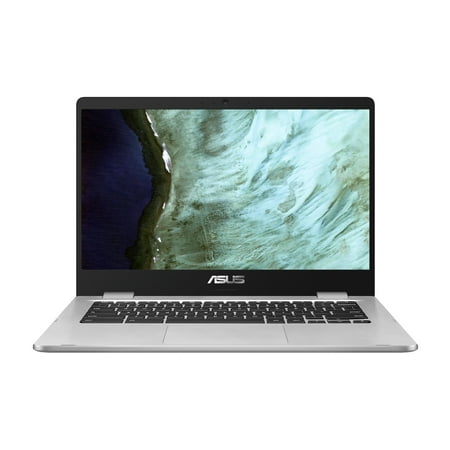
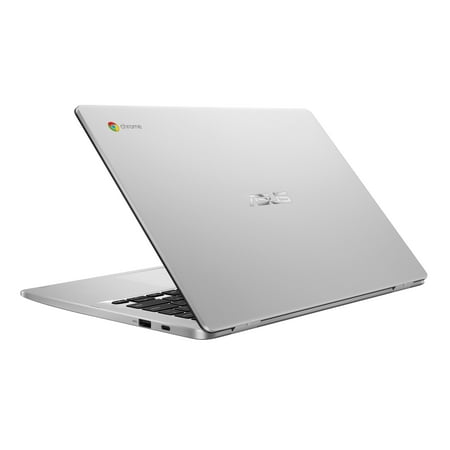
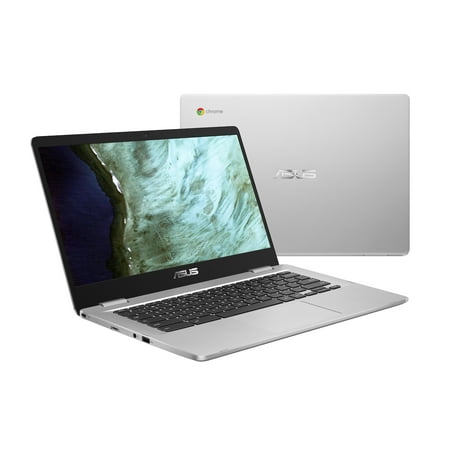
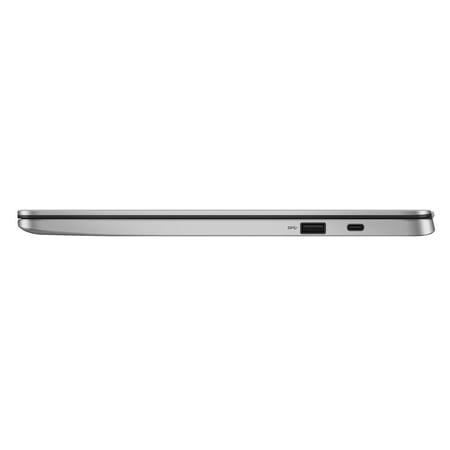
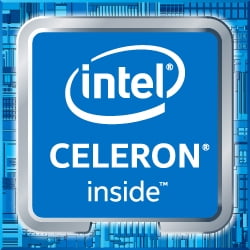
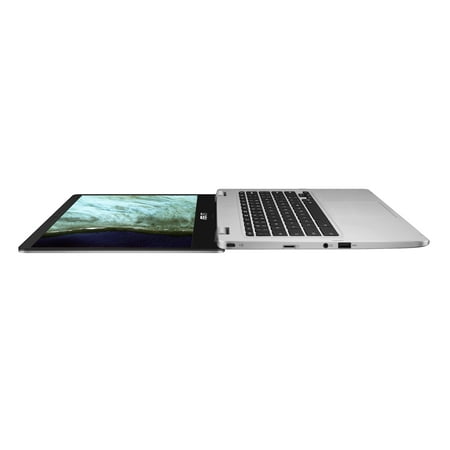
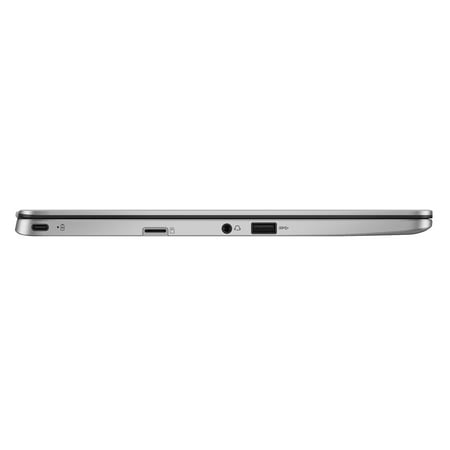
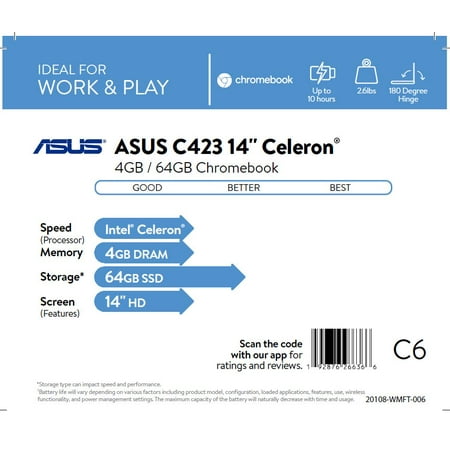
Display: 14″ HD resolution (1366×768)Processor: Intel Celeron N3350 Dual-Core4GB of RAM, 64GB eMMC storageBattery existence: 10 hoursThis object turned into manufactured in 2019
Fourteen or 14 may refer to:
- 14 (number), the natural number following 13 and preceding 15
- one of the years 14 BC, AD 14, 1914, 2014
Celeron is a discontinued series of low-end IA-32 and x86-64 computer microprocessor models targeted at low-cost personal computers, manufactured by Intel. The first Celeron-branded CPU was introduced on April 15, 1998, and was based on the Pentium II.
Celeron-branded processors released from 2009 to 2023 are compatible with IA-32 software. They typically offer less performance per clock speed compared to flagship Intel CPU lines, such as the Pentium or Core brands. They often have less cache or intentionally disabled advanced features, with variable impact on performance. While some Celeron designs have achieved strong performance for their segment, the majority of the Celeron line has exhibited noticeably degraded performance. This has been the primary justification for the higher cost of other Intel CPU brands versus the Celeron range.
In September 2022, Intel announced that the Celeron brand, along with Pentium, will be replaced with the new "Intel Processor" branding for low-end processors in laptops from 2023 onwards. This also applies to desktops using Celeron processors, and they were discontinued around the same time laptops stopped using Celeron processors in favor of "Intel Processor" processors in 2023.
Chromebook (sometimes stylized in lowercase as chromebook) is a line of laptop and tablet computers that run ChromeOS, an operating system developed by Google.
Chromebook runs Android, Linux, and Progressive web apps, as well as functioning offline. They are manufactured and offered by various OEMs, and, in addition to the laptop and tablet form factors, they are available as desktops, all-in-ones, and previously as an HDMI stick PC.
The first Chromebooks shipped on June 15, 2011. As of 2020, Chromebook's market share is 10.8%, placing it above the Mac platform; it has mainly found success in education markets.
A classroom, schoolroom or lecture room is a learning space in which both children and adults learn. Classrooms are found in educational institutions of all kinds, ranging from preschools to universities, and may also be found in other places where education or training is provided, such as corporations and religious and humanitarian organizations. The classroom provides a space where learning can take place uninterrupted by outside distractions.
Google LLC ( , GOO-ghəl) is an American multinational corporation and technology company focusing on online advertising, search engine technology, cloud computing, computer software, quantum computing, e-commerce, consumer electronics, and artificial intelligence (AI). It has been referred to as "the most powerful company in the world" and is one of the world's most valuable brands due to its market dominance, data collection, and technological advantages in the field of AI. Google's parent company, Alphabet Inc. is one of the five Big Tech companies, alongside Amazon, Apple, Meta, and Microsoft.
Google was founded on September 4, 1998, by American computer scientists Larry Page and Sergey Brin while they were PhD students at Stanford University in California. Together, they own about 14% of its publicly listed shares and control 56% of its stockholder voting power through super-voting stock. The company went public via an initial public offering (IPO) in 2004. In 2015, Google was reorganized as a wholly owned subsidiary of Alphabet Inc. Google is Alphabet's largest subsidiary and is a holding company for Alphabet's internet properties and interests. Sundar Pichai was appointed CEO of Google on October 24, 2015, replacing Larry Page, who became the CEO of Alphabet. On December 3, 2019, Pichai also became the CEO of Alphabet.
The company has since rapidly grown to offer a multitude of products and services beyond Google Search, many of which hold dominant market positions. These products address a wide range of use cases, including email (Gmail), navigation (Waze & Maps), cloud computing (Cloud), web navigation (Chrome), video sharing (YouTube), productivity (Workspace), operating systems (Android), cloud storage (Drive), language translation (Translate), photo storage (Photos), videotelephony (Meet), smart home (Nest), smartphones (Pixel), wearable technology (Pixel Watch & Fitbit), music streaming (YouTube Music), video on demand (YouTube TV), AI (Google Assistant & Gemini), machine learning APIs (TensorFlow), AI chips (TPU), and more. Discontinued Google products include gaming (Stadia), Glass, Google+, Reader, Play Music, Nexus, Hangouts, and Inbox by Gmail.
Google's other ventures outside of internet services and consumer electronics include quantum computing (Sycamore), self-driving cars (Waymo, formerly the Google Self-Driving Car Project), smart cities (Sidewalk Labs), and transformer models (Google DeepMind).
Google and YouTube are the two most-visited websites worldwide followed by Facebook and X (formerly known as Twitter). Google is also the largest search engine, mapping and navigation application, email provider, office suite, online video platform, photo and cloud storage provider, mobile operating system, web browser, machine learning framework, and AI virtual assistant provider in the world as measured by market share. On the list of most valuable brands, Google is ranked second by Forbes and fourth by Interbrand. It has received significant criticism involving issues such as privacy concerns, tax avoidance, censorship, search neutrality, antitrust and abuse of its monopoly position.
Intel Corporation is an American multinational corporation and technology company headquartered in Santa Clara, California, and incorporated in Delaware. Intel is one of the world's largest semiconductor chip manufacturers by revenue and ranked in the Fortune 500 list of the largest United States corporations by revenue for nearly a decade, from 2007 to 2016 fiscal years, until it was removed from the ranking in 2018. In 2020, it was reinstated and ranked 45th, being the 7th-largest technology company in the ranking.
Intel supplies microprocessors for most manufacturers of computer systems, and is one of the developers of the x86 series of instruction sets found in most personal computers (PCs). It also manufactures chipsets, network interface controllers, flash memory, graphics processing units (GPUs), field-programmable gate arrays (FPGAs), and other devices related to communications and computing. Intel has a strong presence in the high-performance general-purpose and gaming PC market with its Intel Core line of CPUs, whose high-end models are among the fastest consumer CPUs, as well as its Intel Arc series of GPUs, and sponsors the Intel Extreme Masters, a series of international esports tournaments. The Open Source Technology Center at Intel hosts PowerTOP and LatencyTOP, and supports other open source projects such as Wayland, Mesa, Threading Building Blocks (TBB), and Xen.
Intel (Integrated electronics) was founded on July 18, 1968, by semiconductor pioneers Gordon Moore (of Moore's law) and Robert Noyce, along with investor Arthur Rock, and is associated with the executive leadership and vision of Andrew Grove. The company was a key component of the rise of Silicon Valley as a high-tech center, as well as being an early developer of SRAM and DRAM memory chips, which represented the majority of its business until 1981. Although Intel created the world's first commercial microprocessor chip in 1971, it was not until the success of the PC in the early 1990s that this became its primary business.
During the 1990s, the partnership between Microsoft Windows and Intel, known as "Wintel", became instrumental in shaping the PC landscape and solidified Intel's position on the market. As a result, Intel invested heavily in new microprocessor designs in the mid to late 1990s, fostering the rapid growth of the computer industry. During this period, it became the dominant supplier of PC microprocessors and was known for aggressive and anti-competitive tactics in defense of its market position, particularly against AMD, as well as a struggle with Microsoft for control over the direction of the PC industry.
Since the 2000s and especially the late 2010s, Intel has faced increasing competition from AMD, resulting in a significant decline of its dominance and market share in the PC market. Nevertheless, with a 68.4% market share as of 2023, Intel still leads the x86 market by a wide margin.

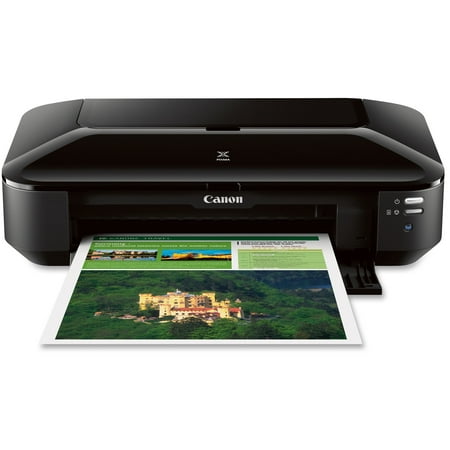

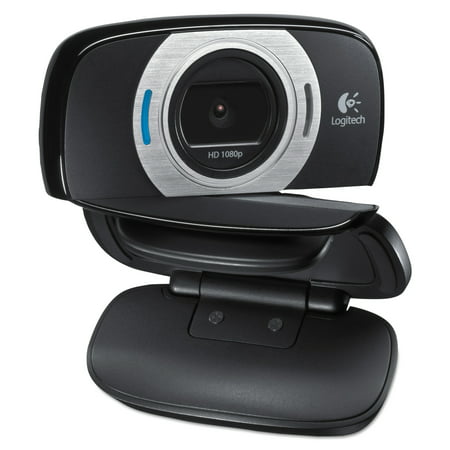

Reviews
There are no reviews yet.